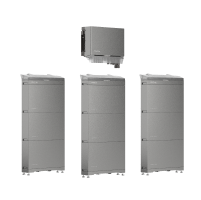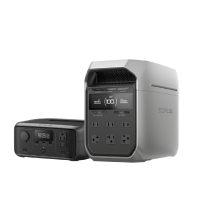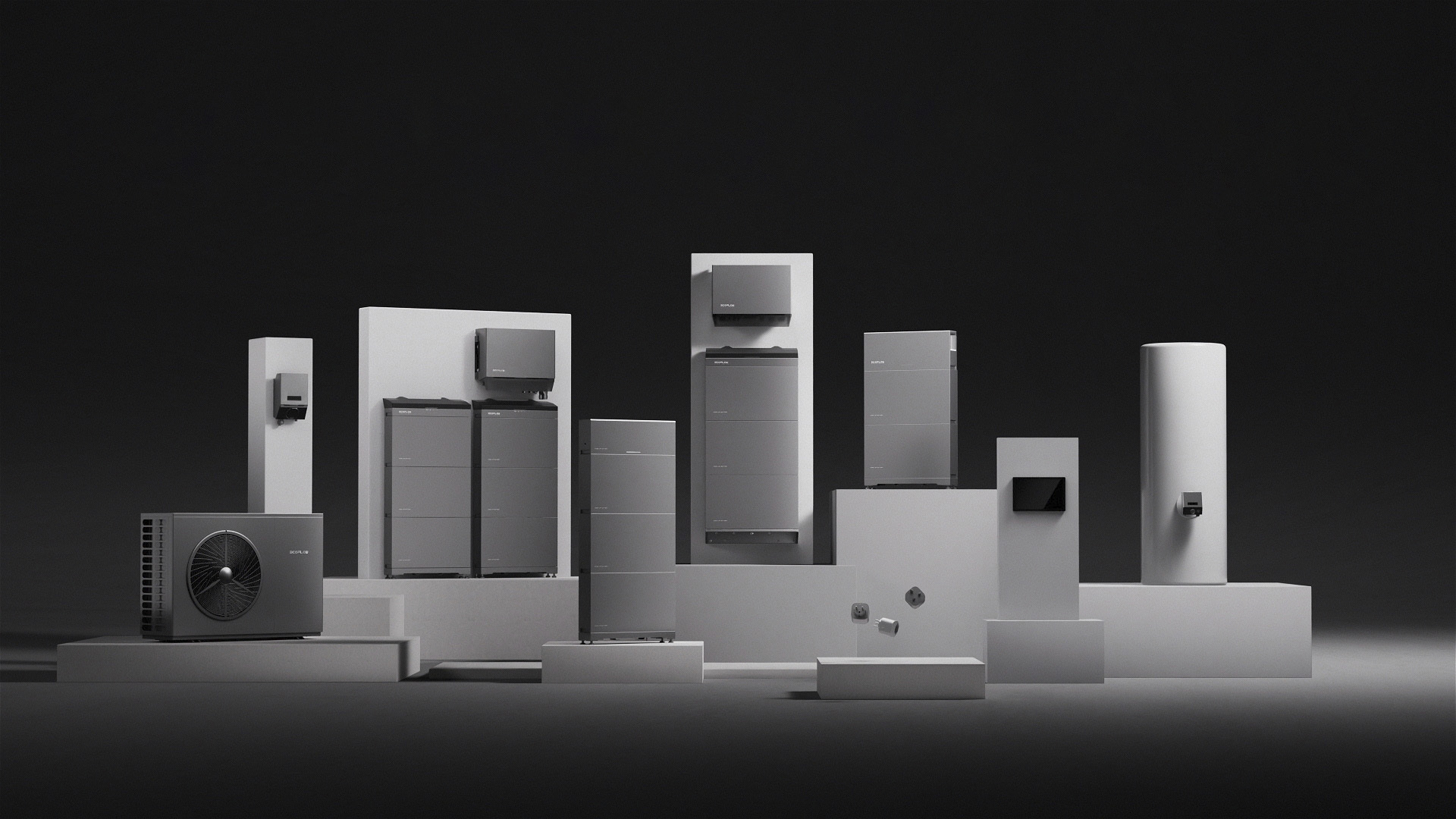Top Energy Storage Technologies in the UK
The UK aims to reach net-zero by 2050, and with solar and wind making over 50% of electricity in 2024, storing that energy is more important than ever. This guide explores the top energy storage technologies to help you choose a sustainable solution for your home or business.
Growth of Energy Storage Systems in the UK
Home energy storage systems are emerging in the UK, with battery project completions increasing 78% in the first half of 2025 and a 49% jump in the planning approvals.
What’s driving this growth? Supportive policies like the Smart Export Guarantee (SEG), which pays you for solar energy you send back to the grid, and 0% VAT on solar-integrated storage since 2024, make it easier and more rewarding to go green.
For homeowners and businesses, energy storage means saving and maximising solar power for when it is needed, like using daytime sun to power your home at night. It also improves bill cuts, assists in charging EVs at home, and reduces carbon emissions.
The main challenges are upfront costs (around £5,000–£8,000), installation space, and needing an MCS-certified installer. But with dynamic tariffs and the market growing fast, energy storage is becoming a future-ready investment.
Top Energy Storage Technologies in the UK
Have you ever wondered how we sustainably keep the lights on when there is no solar or wind power available? Energy storage helps capture and save extra power from renewable energy sources like solar and wind, so we can use it later when we need it most.
The best technologies that can achieve this are:
Battery Energy Storage Systems (BESS)
Battery Energy Storage Systems are like big rechargeable batteries. They use lithium-ion or alternatives like lead-acid or flow batteries to store electricity. You can charge them from solar panels or the grid and use the energy later through an inverter.
BESS is particularly common in the UK in residential homes with solar panels. Modern home battery storage solutions like EcoFlow PowerOcean use safe LFP battery tech, has fire prevention built in, and is waterproof (IP65-rated). PowerOcean also has a capacity of up to 45 kWh, and it lasts more than 6,000 charging cycles, which is ideal for future-proofing your house. You can start simple with just one 5 kWh PowerOcean battery pack and expand whenever you need.
Hydroelectric Energy Storage (Pumped Hydro)
This is a process in which water is used to store energy. When there's extra electricity, it pumps water uphill. When energy is needed, the water flows back down through turbines to generate power.
It is used in large-scale UK sites like Cruachan Power Station, which can power over a million homes. Others go further to use this together with floating solar panels to enhance efficiency. Pumped Hydro is aproven tech, has high efficiency (up to 80%), and high storage periods. The downside is, it needs specific landscapes, not for home use.
Thermal Storage
Thermal storage holds energy as heat or cold. Systems store excess energy in hot water tanks, molten salts, or phase-change materials (PCMs), then release it for heating or cooling when needed.
Homes use it with solar thermal or biomass boilers, and urban areas use it in district heating. Compact heat batteries like Sunamp are great for small spaces. It is efficient for heating, low-maintenance. However, it is not suitable for electricity storage, limited to heat or cooling.
Other Emerging Technologies
Compressed Air - Stores energy by compressing air underground. Pilot projects are underway in the country.
Flywheels - Spinning wheels for short bursts of power.
Liquid Air (LAES) - Converts air to liquid, stores energy at a large scale. This is used by the UK’s Highview Power.
Hydrogen - Converts extra electricity into hydrogen for long-term storage. It is ideal for seasonal use.
Comparing Energy Storage Systems: Which One Fits Your Needs?
Choosing the right energy storage system depends on what you need. Whether it's powering your home, storing solar energy, or heating water, each type has its strengths.
Here's a simple comparison to help you decide:
| Type | Duration | Efficiency | Initial Costs | Best For |
|---|---|---|---|---|
| Battery (BESS) | Hours to days | 85–95% | Medium to High | Homes, EVs, solar systems |
| Pumped Hydro | 16–60 hours+ | Up to 80% | Very High | Grid-scale, long-term use |
| Thermal Storage | Hours to days | 70–90% (heat) | Low to Medium | Heating, hot water, space-limited homes |
How To Choose the Best Energy Storage Option
Not every place of residence, as well as business, consumes energy in the same manner. Some people want to power their whole house at night, while others just want hot water for showers or to save on heating bills. That is why the best energy storage system also depends on your needs.

Energy Needs and Usage Patterns
Begin by reflecting on the amount of energy that you consume and when. Do you use most of your electricity in the evening? Do you have solar panels that generate energy during the day?
A Battery Energy Storage System is the right option in case your house is powered by solar energy or you drive an electric car. It accumulates additional electricity to be utilized at a later date.
On the other hand, if your main energy demand is for heating, such as using radiators, underfloor heating, or hot water, thermal storage is a good choice. It accumulates heat rather than electricity which could be utilized later in the day or sometimes days after.
Budget and Cost Considerations
A home BESS costs between £5,000 and £8,000 for around 5–10 kWh. Prices are slowly dropping, and schemes like the Smart Export Guarantee (SEG) pay you for energy you export (4–12p/kWh), helping you save.
Hydroelectric energy storage, like pumped hydro, is powerful, but not practical for homes. It can cost over £100 million and is only used by large utilities.
Space and Installation
Consider the direction the system is going to take. BESS and thermal storage can be installed in most homes. Modern systems are compact and even wall-mounted, making them perfect for small urban spaces.
Hydroelectric systems, however, need large sites with two water reservoirs, usually on hills or mountains, so they’re only for big infrastructure projects.
Scalability and Integration
Can your system grow with you? BESS is highly scalable. It is possible to add additional units of battery in the future and combine them with solar panels or EV chargers. Systems like EcoFlow PowerOcean make it easy to expand and integrate.
Thermal storage also fits well into heating setups, like with heat pumps or biomass boilers. The new technologies like hydrogen or compressed air storage are exciting but mainly for large-scale or special projects right now, not as flexible for homes.
Environmental Impact and Durability
Last but not least, think green. A Battery Energy Storage System has a decent lifespan and recycling is improving. Thermal storage uses eco-friendly materials like water or salts and can last many years with low maintenance.
Hydroelectric energy storage is super durable but may impact local wildlife and land if not carefully managed.
What kind of product or solution are you interested in?


Consider Energy Storage for a Clean and Sustainable Home
Energy storage is key to the UK’s clean energy future, helping homes and businesses use solar, cut costs, and lower emissions. Whether you need battery or thermal storage, EcoFlow offers innovative, flexible solutions.
FAQ
Can I install an energy storage system without solar panels?
Yes! It is possible to charge the energy storage system at the grid at off-peak periods and it is also possible to utilize the stored energy later. It still helps lower bills and reduce peak-time usage, even without solar panels installed.
How long does it take to charge a home battery system?
The normal charge duration will be determined by the size of the battery and the source of your energy.With a smart inverter to control the power consumption of the solar panels or the grid, most battery systems require 2-8 hours.
Do energy storage systems work during power cuts?
Some systems do! As an example, when your installation has some form of backup functionality, such as PowerOcean, then it is capable of supporting mandatory appliances during power cuts. Just make sure a backup is part of the installation plan.



